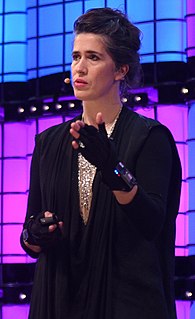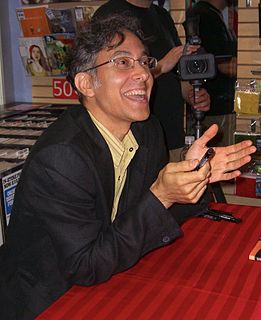A Quote by Aleksandr Solzhenitsyn
In the camp, this meant committing my verse-many thousands of lines-to memory. To help me with this I improvised decimal counting beads and, in transit prisons, broke up matchsticks and used the fragments as tallies. As I approached the end of my sentences I grew more confident of my powers of memory, and began writing down and memorizing prose-dialogue at first, but then, bit by bit, whole densely written passages. My memory found room for them! It worked. But more and more of my time-in the end as much as one week every month-went into the regular repetition of all I had memorized.
Quote Topics
Beads
Began
Bit
Broke
Broke Up
Camp
Committing
Confident
Counting
Dialogue
Down
Down And
End
Every
First
Found
Fragments
Grew
Had
Help
Help Me
In The End
Lines
Many
Matchsticks
Me
Meant
Memorizing
Memory
Month
More
More And More
Much
My Time
Passages
Powers
Prisons
Prose
Regular
Repetition
Room
Sentences
Them
Then
Thousands
Time
Transit
Up
Used
Verse
Week
Whole
Worked
Writing
Written
Related Quotes
It is a bit more challenging for the simple fact that now the stories I am writing are relying more on my imagination than on facts, more on research than on memory; so it is basically a slower writing process, more reading, more exploring. On the other hand, this approach is a little bit relieving too, since many times while writing [How the Soldieer Repairs the Gramophone] I felt too close and equal to my character.
You have to be reminded of a basic fact: intelligence belongs to the watching consciousness; memory belongs to the mind. Memory is one thing - memory is not intelligence. But the whole of humanity has been deceived for centuries and told indirectly that the memory is intelligence. Your schools, your colleges, your universities are not trying to find your intelligence; they are trying to find out who is capable of memorizing more. And now we know perfectly well that memory is a mechanical thing. A computer can have memory, but a computer cannot have intelligence.
If any one faculty of our nature may be called more wonderful than the rest, I do think it is memory. There seems something more speakingly incomprehensible in the powers, the failures, the inequalities of memory, than in any other of our intelligences. The memory is sometimes so retentive, so serviceable, so obedient; at others, so bewildered and so weak; and at others again, so tyrannic, so beyond control! We are, to be sure, a miracle every way; but our powers of recollecting and of forgetting do seem peculiarly past finding out.
Memory is a wonderfully useful tool, and without it judgement does its work with difficulty; it is entirely lacking in me.... Now,the more I distrust my memory, the more confused it becomes. It serves me better by chance encounter; I have to solicit it nonchalantly. For if I press it, it is stunned; and once it has begun to totter, the more I probe it, the more it gets mixed up and embarrassed. It serves me at its own time, not at mine.
Memory is strange. Scientifically, it is not a mechanical means of repeating something. I can think a thousand times about when I broke my leg at the age of ten, but it is never the same thing which comes to mind when I think about it. My memory of this event has never been, in reality, anything except the memory of my last memory of that event. This is why I use the image of a palimpsest - something written over something partially erased - that is what memory is for me. It's not a film you play back in exactly the same way. It's like theater, with characters who appear from time to time.
If you send out one coupon with a deadline of a week and another that must be used within the next month, you end up having more redemptions with the one week deadline. It's really amazing. With the month deadline you have four times as much time, but people tend to say they'll use it in a few weeks' time and then they don't do it.
To live (as I understand it) is to exist within a conception of time. But to remember is to vacate the very notion of time. Every memory, no matter how remote its subject, takes place 'Now,' at the moment it's called to the mind. The more something is recalled, the more the brain has a chance to refine the original experience. Because every memory is a re-creation, not a playback.
But pain may be a gift to us. Remember, after all, that pain is one of the ways we register in memory the things that vanish, that are taken away. We fix them in our minds forever by yearning, by pain, by crying out. Pain, the pain that seems unbearable at the time, is memory's first imprinting step, the cornerstone of the temple we erect inside us in memory of the dead. Pain is part of memory, and memory is a God-given gift.
Objects obey quantum laws- they spread in possibility following the equation discovered by Erwin Schodinger- but the equation is not codified within the objects. Likewise, appropriate non-linear equations govern the dynamical response of bodies that have gone through the conditioning of quantum memory, although this memory is not recorded in them. Whereas classical memory is recorded in objects like a tape, quantum memory is truly the analog of what the ancients call Akashic memory, memory written in Akasha, Emptiness- nowhere.





































